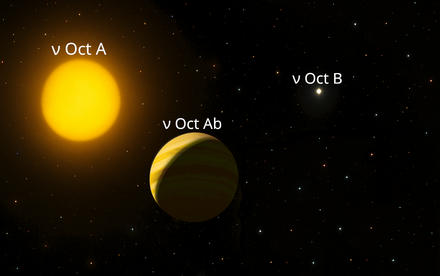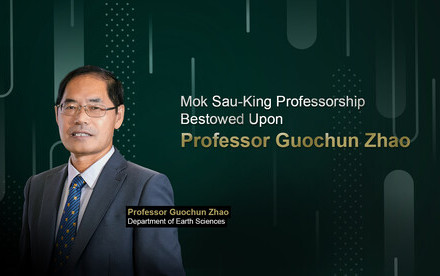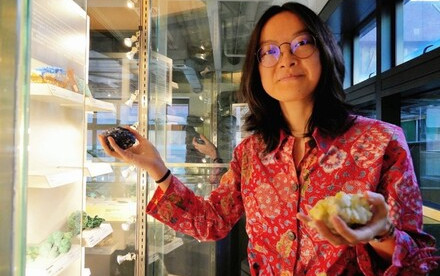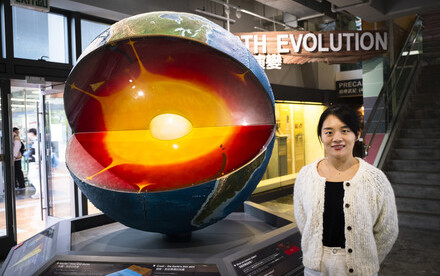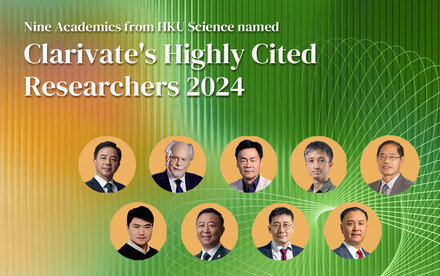29 Oct 2024
Exploring New Frontiers: HKU’s Visit to IGG & NAOC-CAS Enhances Planetary Science Cooperation

HKU delegation visited the National Astronomical Observatories, Chinese Academy of Sciences.
In modern times, space exploration—particularly missions to the Moon, Mars, Jupiter and asteroids, has garnered much attention around the world. China has successfully conducted the Chang’e-1 to 6 lunar missions, returning the youngest mare basalts and the first farside samples of the Moon. The Tianwen-1 mission has also achieved remarkable milestones by orbiting, landing, and roving on Mars. Looking ahead, China is planning for even more ambitious missions: exploring the south pole of the Moon with Chang’e-7 and 8, sending humans to the lunar surface through crewed missions and International Lunar Research Station, returning samples from asteroid (Tianwen-2) and Mars (Tianwen-3), and investigating the Jupiter system (Tianwen-4).
This substantial investment from both governmental and private sectors, along with the data and samples collected, has brought unprecedented opportunities for the development of planetary science. Such efforts may help answer the most fundamental scientific questions about the Solar System, especially its early time. In this trend, The University of Hong Kong (HKU) is increasingly playing a vital role in China’s lunar and planetary explorations, emerging as a leading university in planetary science within the Greater Bay Area, particularly over the past five years. HKU is the first university in Hong Kong to study China’s lunar samples, conducting extensive research on the landing sites of Chang’e-6, Tianwen-1 and 3, as well as the target of Tianwen-4, thus providing critical support for these missions.

HKU delegation visited the Institute of Geology and Geophysics, Chinese Academy of Sciences.
Recognising the growing significance of planetary science in achieving its STEM goals, HKU sent a delegation led by Professor Guochun ZHAO and Professor Zhonghui LIU (Interim Head) from HKU Department of Earth Sciences (DES-HKU) to visit the Institute of Geology and Geophysics (IGG-CAS) and the National Astronomical Observatories (NAOC-CAS) of the Chinese Academy of Sciences on October 18, 2024. The visit aimed to deepen cooperation in planetary science and further integrate HKU into China’s lunar and planetary missions.
On the morning of October 18, a workshop on planetary sciences and cutting-edge technologies was held between IGG-CAS and DES-HKU. Director of IGG-CAS, Professor Qingyun DI, along with Professors Fuyuan WU and Yongxin PAN expressed their warm welcome to the HKU delegation. Professor Guochun ZHAO presented an overview of the current status and future prospects of planetary sciences at DES-HKU. Professor Wei LIN, the Director of the Earth and Planetary Physics Research Unit at IGG-CAS, outlined the plan for establishing a lab focused on planetary science and cutting-edge technologies. Additionally, Professor Chenxi XU, Head of the Science and Technology Office at IGG-CAS, discussed cooperation opportunities in talent and student training, as well as research initiatives.
During the discussion, members from both DES-HKU and the IGG-CAS exchanged views on strengthening cooperation in specific areas, including planetary environments (Professor Zhonghui LIU), planetary volcanology (Professor Weiran LI), and Jupiter (Professor Zhonghua YAO), Mars (Dr Jiacheng LIU), and the Moon (Dr Yuqi QIAN) sciences. All attendees expressed strong support for enhancing ties between both institutions, which would contribute to national objectives in lunar and planetary explorations.
In the afternoon, the HKU delegation visited the Lunar and Planet Exploration Program Ground Application System (GRAS) at the National Astronomical Observatories, Chinese Academy of Sciences. Professor Jianjun LIU (the Deputy Chief Designer of GRAS) and Professor Qin ZHOU (the Deputy Chief Designer of the GRAS for the Chang’e-6 mission) introduced the Lunar Sample Lab to the HKU delegation, detailing the process of unsealing, classifying, preparing, archiving, and storing the lunar samples. Professor Jianjun LIU further elaborated on the role of GRAS in China’s lunar and planetary missions, highlighting the major scientific achievement of GRAS stemming from these initiatives, including the implementation of Tianwen-1 Mars and Chang’e-6 lunar missions.
Lastly, Professor Guochun ZHAO emphasised the importance of collaboration between HKU and NAOC, particularly in lunar sample studies and research related to the Moon and Mars, as well as future lunar and planetary missions. Members of HKU and NAOC engaged in discussion on specific research topics with Dr Jiacheng LIU and Dr Yuqi QIAN shared their experience using scientific data and samples released by GRAS, expressing their gratitude to NAOC for their significant contribution to China’s lunar and planetary missions.


